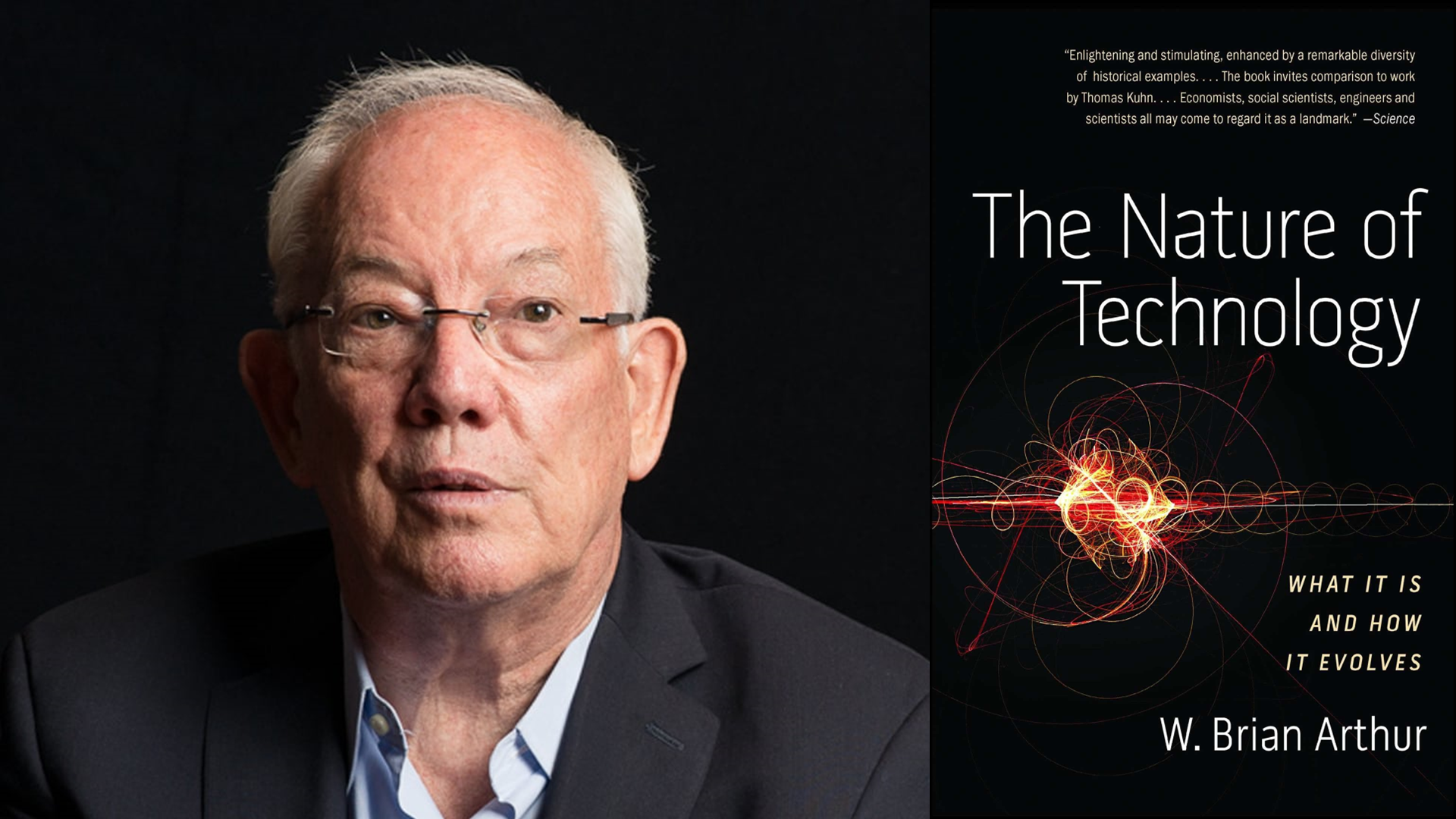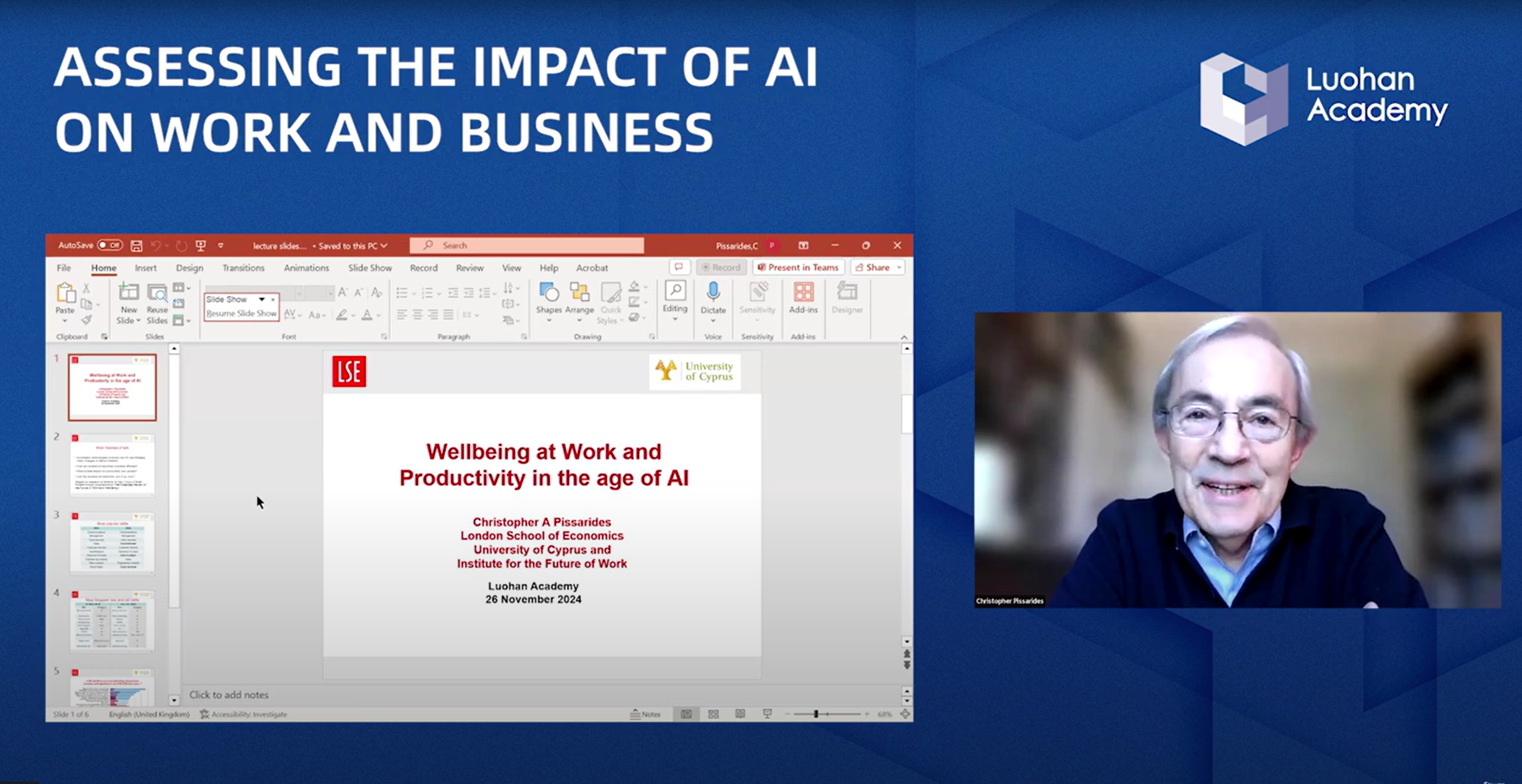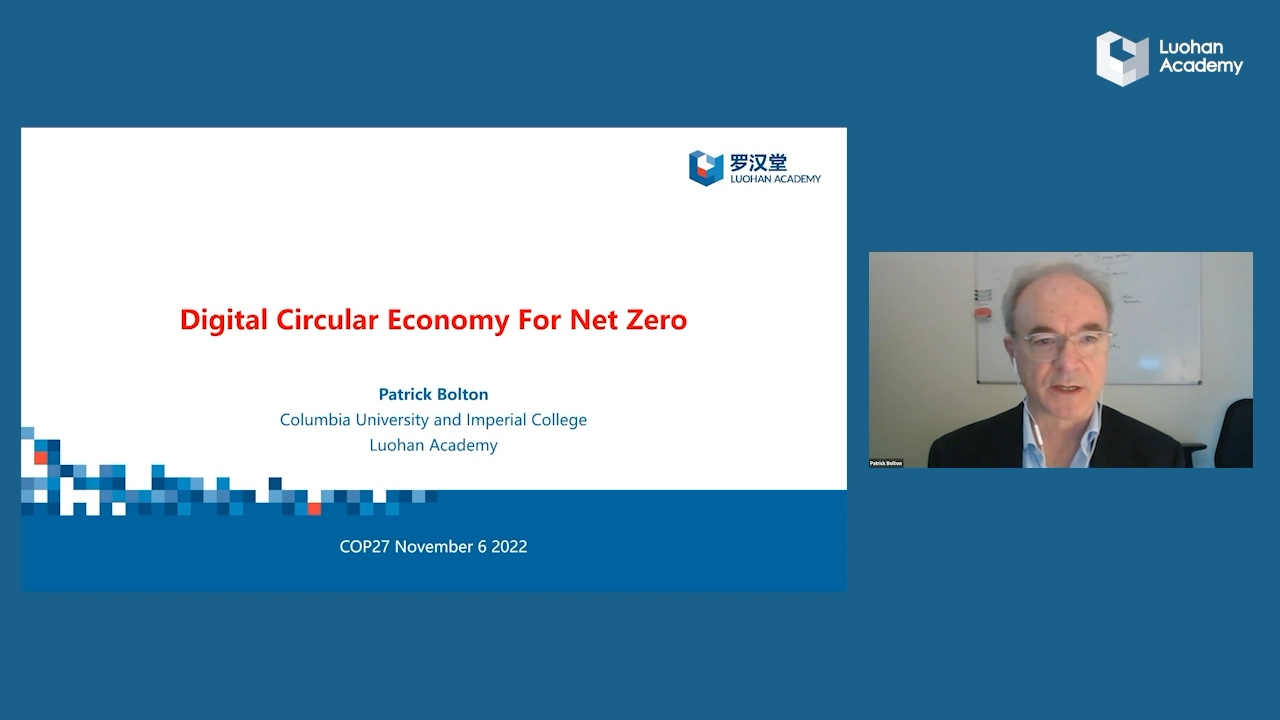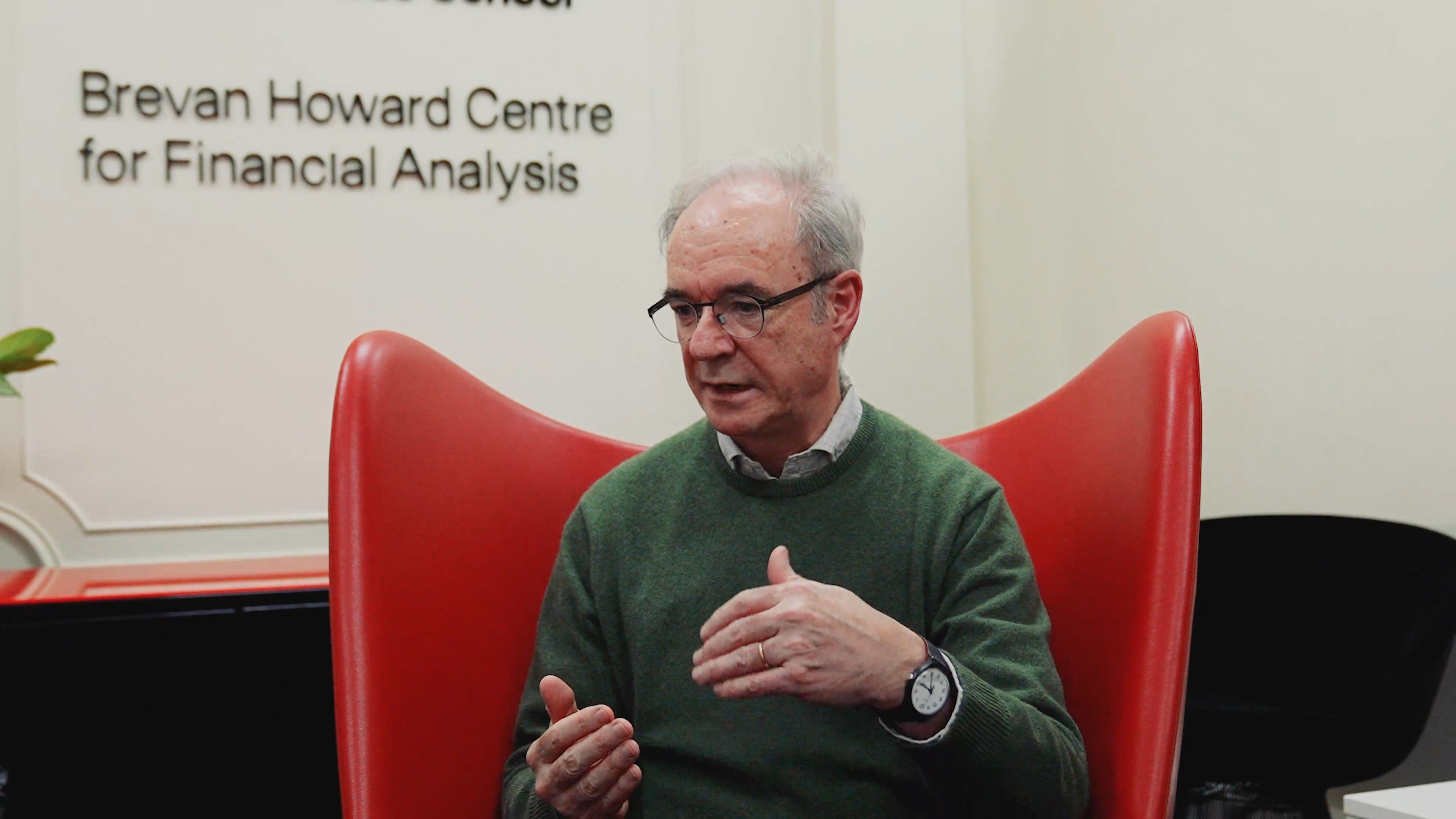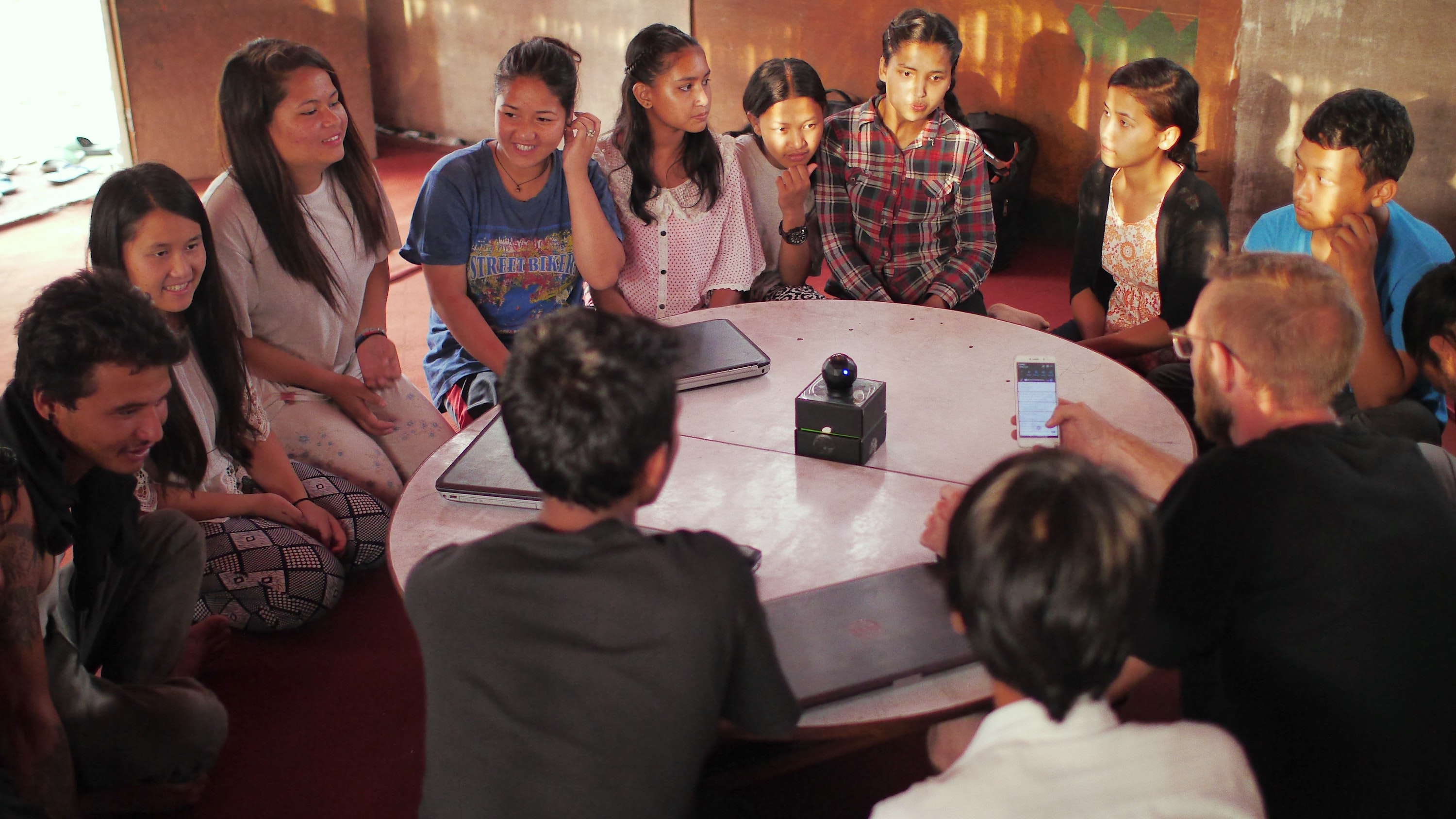Twenty-five years ago in 1997, Diane Coyle, currently Professor of Public Policy at Cambridge University, wrote her first book The Weightless World: Strategies for Managing the Digital Economy covering how the initial stages of the digital revolution were changing society at large. Coyle has been a prolific scholar, communicator, and policy advisor since then, with no fewer than nine published books. Her dedication to understanding the evolving economy has earned her numerous awards, including an OBE in 2009 and a CBE in 2018. She serves on the Competition Commission, the National Infrastructure Commission, is a fellow of the Office of National Statistics, among other appointments.
Her latest book is Cogs and Monsters: What Economics Is, and What It Should Be, which expounds on her views on the economics profession and its need to evolve in a rapidly digitalizing world. We sat down virtually with Professor Coyle to discuss her book and her views on the digital economy. We also asked her about her long-standing interest in measuring the new economy, something Luohan Academy and our scholars are also working to understand. The following is the full interview with Professor Coyle conducted by Randy Xu from Luohan Academy. The transcript has been lightly edited for clarity.
Randy Xu
Diane, thank you so much for taking the time to speak with us today. So you are Bennett Professor of Public Policy at Cambridge University. You're also the Co-Director of the Bennett Institute for Public Policy. You've been an advisor, State and Treasury, former Chair, Vice Chair of the BBC Trust, member of the Competition Commission, advisor to the National Infrastructure Commission, fellow of the Office of National Statistics, you've been awarded a CBE for contributions to public non public economics. By any measure, you're a prolific writer of books, and a frequent commentator in the media to communicate economics to the wider public. And the latest of those books is Cogs and Monsters, which range on your views on the state of your profession today, and the future in an ever digitizing economy. You're also an expert, by the way, on measurements of the economy and productivity. And in fact, a few years ago, you published a book called GDP: A Brief But Affectionate History. I probably am missing a lot so I would love for you to frame your work in your own words, and add anything I missed.
Diane Coyle
Well, thank you for the invitation to talk to you, I really appreciate it. And it's a very generous description of what I've been doing over the years. I guess the thing that has always motivated me is that economics is and should be a tool to serve society. And like many economists, that's the motivation. We want to make the world a better place. And I've long been interested in what digital technology is doing to transform the circumstances in which we're trying to devise policies. In fact, it’s 25 years this year since my first book, The Weightless World, was published, trying to understand what the implications of the new technologies were for the economy, for society, for policy. And there are two key questions. One is just what's that doing to the structure of how people lead their lives every day, and how businesses operate business models? And the other is about what does that do to wanting to make things better? And this is where the measurement aspect of it comes in.
Because economists always default to thinking about aggregates like GDP growth. Is GDP growth going up? And that means you've got to think very carefully about what is it measuring. Is it on the one hand, a good measure of sort of what economists would call social welfare, the well-being of society as a whole, and on the other hand, is keeping up with this structural transformation that's been going on. And on the latter, it clearly hasn't because in the US and UK, people now spend a day a week online, more than 28 hours a week, which is a change in daily behavior. The things that we can do using this technology, be it ride-sharing, or calling for food to be delivered, or saving time, because we've got apps that tell us about public transport. And business models have changed entirely. And these things were invisible in official statistics. So a lot of my work in recent years has been working on, the concepts and the measurements in a very statistical way. But addressing that underlying question of what makes things better, and what can I bring to the table as an economist to contribute to society?
Randy Xu
Well, we appreciate your work in this area. You know, we'll come back to that measurement of the economy in a bit. But why don't we start with the book. And one of the reasons I really love Cogs Monsters is because, as an non-economist, I find that it's not just a simple litany or a recitation of economic history. But it actually discusses the evolutions in debates within economics, framed around, real world issues, starting with the financial crisis, and then moving on to the changes in the digital economy. So for me, it makes those economic theories and debates sound much more connected to the real world. To begin with, for our audience, who is not familiar who hasn't read the book yet? What can you explain the title of the book? What are the cogs and what are the monsters in economics?
Diane Coyle
Well, it sounds great. That's partly why I chose the title. But the cogs are individuals making well specified choices in the economy. And this is the traditional way that economists think about how the collective outcomes can be observed come about, you're adding up individual choices by households or businesses. And the monsters is a reference to the fact that actually, the technologies are increasing the scope of the spillovers by which individuals are separate companies affect each other. Whether it's network effects in digital markets, or whether it's social media and people's use of social media. We now have a very profound effect on others.
And so the references to ancient maps, where when people didn't know what was going on, they would put in a picture of a monster and say “Here Be Monsters.”
And one of the arguments in the book is that, although in academic economics, there's a lot of research going on, about digital how markets operate, how do people innovate in these markets and so on, that has not spilled over to either how people are taught economics, if they're doing it as an undergraduate, or to how policymakers think about economics. And so the later part of the book is all about how should we think about competition policy and digital markets, we need different tools. So that's, that's, that's the monsters with reference to artificial intelligence, which, if you like, is like that classic individual assumed by economists, algorithms have an objective function, they have to maximize that objective function. And they do that with reference to a certain set of data that they've been trained on, and that they get as inputs, but not the whole depth and complexity of the real world. So we're launching into policy decisions at very powerful algorithms that are behaving like the cogs assumed and economic models and taking decisions that have a big impact on people's lives. So I think policy also needs to think much more carefully about what the effects of that are going to be. And how is that going to be used to make people's lives better? And so, so treading sailing with caution, into those waters where the monsters are swimming?
Randy Xu
I think your book, you mentioned, some experiments they ran, where if they programmed some AI agents to maximize on some rational model, what they ended up happening was they ended up attacking each other or stealing from each other. If you compare that to the real world, humans don't quite do that. We're not always acting very “rationally”. So there's a lot that moderates our behavior that isn't captured in just simple models.
Diane Coyle
That's right. And part of the whole behavioral economics revolution is about understanding better the psychology. And I think that has a long way to go, actually. So we can get a lot more insights there. But it's also just acknowledging the fact that decisions are not being taken so independently, and social norms make a big difference. And there's a very rich tradition of political economy, the Elinor Ostrom tradition of thinking about these collective kinds of behavior, and they're perfectly rational. But they're a different model of behavior than the one that is being encoded into AI, algorithms and machine learning models.
Randy Xu
I kind of think about a subject I know somewhat better, which is the natural sciences and the history of the natural sciences, which I studied back in school. And it seems to me just that very high level observation that maybe the term economist is a bad term for what economists should provide. Because it anchors the suggestion that economists fully understand the economy. I work with many economists today. So I can say that they are very bright people, they work very hard at building tools and analysis that help us understand parts of the economy, and especially in a systematic way. And those tools are powerful, but they're also very limited if they're not combined with the full weight of human judgment, especially derived over the years. And that's different. That's a little different than natural sciences. In the natural sciences, everything in the world might operate based on physics, but we don't call physicists “worldists”. We don't expect a physicist tell us everything that's going on wrong with the world or our cars breaking down. And the other difference is that in physics, many models are additive. Even incomplete ones like Newtonian physics can get us to the moon. Whereas an economic model that doesn't take into account the real world, human behavior, or irrational exuberance is, can be downright dangerous, right? Even in the natural sciences, if you think of Thomas Kuhns Structure of Scientific Revolutions, things are not all objective either? There are paradigm shifts, there's popular beliefs that take time to be overturned. So but this is much more difficult as social science, right the world often exhibits is what you call non-convexity right, non-linearity. So how should society and economists think about their role?
Diane Coyle
It's tricky, isn't it? I mean, economists are in a difficult position. Because, you know, as you say, often they seem to be over claiming for their knowledge, compared to some other sciences. On the other hand, many people don't feel entitled to say, well, physics is all rubbish, because they've got this particular assumption wrong. And so there are yet there are critics of economics, and economists who feel absolutely free to rubbish the subject, despite not knowing very much about it, because it's part of everyday life. And this is why I think the communication aspect of economics is so important. And it's not just that we need to explain what we do, in language that people understand and appreciate that the same words have very different normal meanings, and they do in economics, but also, communicating with our ears, you know, hearing what people's concerns are making sure that it's a two way dialogue, because we're in a very powerful position, visa vie policy choices and impacts on people's lives and livelihoods. And I think there's therefore just an absolute requirement to have that two way conversation. And there's been a huge growth in the number of economists giving advice to governments, and the impact that that advice has, and people see economists standing up on TV or going on social media and making very strong statements about what's going to happen to the world, I think there's a responsibility that we have to address people's concerns, but also to acknowledge our own limitations. And the one that particularly bothers me is this claim that economics is more science like than it really is, which your question alluded to the claim that we're like, we're like engineers, or we're like plumbers or be like dentists, these are all analogies that have been used, and by very well known economists, and they give the impression that if you get the evidence, you get the right data, you analyze the problem, you can just fix the problem. And there's a right answer to it. When actually, generally, there are social choices or political choices to be made, there are values attached to the things that economists recommend. And I think we've done ourselves a real disservice over the decades by pretending to be much more objective, and it's possible to be, but it's quite a fine line to walk. Because there are some things where there's evidence, you know, if you raise a certain tax rate, then an economist can tell you with, with a reasonable margin of error, what the response is going to be on the sale of that item that's being sold in the stores. So that's pretty objective. And if we're giving advice to policymakers, we want it to be as objective as we can. So you know, more of a try to step back and say, I'll set aside my own political views. But this is what I think, is the set of choices that you face in these circumstances. And this is what would happen. And yet at the same time, you've got to acknowledge that there are winners and losers, whenever you're talking about policies, there are winners and losers. And you can't really get away from that. And I think this is claimed to more objective objectivity as possible, it's actually been very damaging for the reputation of economics.
Randy Xu
Now, on that note, in the book, you start with the great financial crisis. There's a healthy debate that you allude to in the book, on whether economics caused it, or at least helped in the process. Or the other view that it was economists who were actually warning about it, and not listening to economists was the issue. But you seem to at least have sympathy to the argument that economics had a role to play in the making of the great financial crisis. Can you elaborate on this and on what lessons this has for economics going forward?
Diane Coyle
There were many economists working on financial markets, financial economics, whose work underpinned the growth of derivatives markets, and the way that the investment banking sector thought about new products. And the claims made by many, by some economists, I guess that the what was happening with the growth of derivatives was spreading risks. It was helping the financial sector manage risks better. And it turned out that was not the case. Actually, it was const Integrating risk. And when an event occurred, that tipped into the systemic crisis that we saw in 2007 2008. So in a sense, I think there was an area of economics that enabled that that created the environment whereby regulators and big financial markets, like the United States, thought it was fine to deregulate, and lift some of the restrictions on derivative products or the activities that investment banks could undertake. And I think that was enabled by economists. At the same time, there were other economists working in the different parts of the forest, who were now famously calling out some of the tensions and risks that they saw in macroeconomics.
And that was the global imbalances in the trade balance between the United States and countries like China and Germany, but also in the ratio of house prices, to incomes and how out of kilter that was getting with what people could afford. So there were those warning signals, and a few people did good point to those. At the time, I was advising investment bank, and presenting quarterly forecasts of the economy to them. And I did say, look, there are all these red lights flashing. And one of either two things could happen, either there will be a crisis, or there will be some kind of orderly workout and things will slowly and gradually go back to normal. And I don't know which is going to happen. I wasn't brave enough to call it and they decided that it was going to be the easy way out. And they were wrong. It's just much easier. It's very risky predicting a crisis, I guess. And the people who did like Nouriel Roubini are justly famous for having done so publicly.
Randy Xu
My own quick story was I was just getting started in my career out of college. I went to Harvard so many of my friends were working at investment banks, and that was quite normal. I was working as a junior analyst at a boutique investment research firm. And when I went back to my middle-class town, I could always explain to them how CDSs worked, or you know, how subprime bond. But once I actually explained it, in layman's terms, then it just seemed very obvious that something might have could have happened, because in layman's terms it boiled down to: okay, we found a way to spread risk around to increase the value of it, and people get paid a lot for this. There are incentives to sell a lot of these. Well, you don't have to be a PhD to understand that this could cause problems. So it goes to your point that when you couch everything in complicated math, it actually makes problems harder to identify, right? Because it doesn't leverage the wisdom of everyone.
Diane Coyle
Yes, including for the people who are deploying the equations, because it often stops them thinking it through in, in layman's terms. It's why I like teaching, actually, because it's very hard to teach. Well, if you don't understand what you're saying. And if you're teaching undergraduates, that has to be pretty non-technical to start with.
Randy Xu
You know, for those looking just for criticism of the profession, I think they will be disappointed with your book, because you do actually defend the profession against what you've thought I find to be maybe unfair criticisms, I think, you know, one of the key points you make is that economics has actually come a long way. And we shouldn't always be looking at it, you know, several decades ago, it has actually evolved in the last 100 years in the last 40 years going beyond, you know, just simple models. So where do you think he has succeeded in advancing better understanding of the real world? And where do you think it still has not? You know, what are the important things that economics you think must adapt, so that it can contribute to making the world better?
Diane Coyle
One of the reactions I sometimes get from academic economists of the book is, but we're doing all these things that you say you say we should be doing. And it's true that there is somebody doing all of the things that I would like economists to do. It's a translation question and the lag between translating the frontier into what people do when they get into their policy jobs. But I think there are a number of things that you can point to as successes. For example, behavioral insights and thinking about game theory and market design, these are all areas where these strategic interactions between people are part of the core of the economic analysis, and have helped design specific markets. You could also point to as few areas of macroeconomics, that ensured financial crisis did not have the impacts that it would have done had it happened before. Some of the macroeconomics that evolved in the from the 1980s onwards. Having said that there are fashions out there, because economics responds to what's going on in the world and their intellectual passions. And the kind of world we're in now, where we've had several global crises. And we may have more. And we've seen supply chain disruptions, we've seen the energy and food price spikes that are going on this year. That's a different kind of problem that economists try to analyze give policy advice about. And I think there's a swing of the pendulum away from the at least in the Western economics faculties, the free market tradition that we've had, since the late 1970s, to something that's much more focused on. If we're thinking about the strategic dynamic world, how do we get government policies to coordinate activities? How do we set a strategic framework for new technologies or for net-zero transition? And I think a different kind of economics is emerging from that. But it's been too slow in digital markets. A great example is competition policy. Only in the past two or three years have competition authorities picked up on multi-sided platforms and thinking about how digital markets operate when there are network effects, thinking about the importance of competing for the market. If you're going to have a dominant company in each case, then you want it to be contestable. So a newcomer can come in and dominate that market. And it requires a different set of policy tools. I think there are successes that one can point to, but it's still a gap in terms of how quickly does that get translated into policy advice or business decisions, and they're still inaccurate?
Randy Xu
Well, please hold that thought we want to return to that. I think this is a good point to transition to more discussion of the digital economy. And to begin with, the first and most important problem is how to even measure it. In fact, you know, we run since COVID, we've run a Frontier Dialogue symposium series, where we bring together a number of economists and scholars from other fields. Our first one was called Measuring the New Economy. It was interesting reading your book, in “GDP”, where you wrote that there were huge debates about what should go into GDP. I think some people felt that speculation shouldn't go into GDP, the kind of activity that was boosting prior GDP in London and New York, right? So it seemed like economists were, at that point, aware of the dangers of excesses and bubbles, some of them didn't think that some of this activity actually should contribute. There were many normative views on what should go and into and not go into what was even measurable at the time. We'd also love to hear your thoughts about you know, how those decisions factor in today. The question, looking at the digital economy is how much is measurable? So there's been proposals. Erik Brynjolfsson, who has proposed that we should try to measure benefits to people. And there are methodologies to do that. You could survey people, you could ask them how much they will actually pay for a service that maybe is free right now. But it seems to me that kind of begs the question, discussed in your book on GDP, which is what is one what is measurable? And do we want to measure there are many activities that we do that contribute to our well being that we don't that just are not charged for, like hanging out with friends going with friends and playing basketball, and a public park right, by me going to a casino or me going to an amusement park? That certainly is measured and goes into GDP, but many other activities I undertake are not. So I guess with that You know, seems like a very complicated question to resolve.
Diane Coyle
It is in some of these debates, as you said in the question, date right back to the origin of GDP, the definitions that we use get updated every 10 to 20 years, there's a process going on now to update them. And a new set of standards will get published in 2025. And each time so far the financial sector has looked like it increased its contribution to GDP because of the way it's been measured. So the latest iteration is that essentially, you measure risk taking by the financial sector and make that part of the output. So we had the perverse result, but in the United Kingdom, very badly affected because it has a big financial sector, the biggest contribution of the sector to GDP, was the final quarter of 2008, was exactly the time when the crisis was breaking. And that's just clearly absurd. So that ought to be part of the Rethinking. I'm not sure. I'm not sure whether that will happen or not. But it points to just require a fundamental question, do you want to just measure activity? Or do you want to measure some kind of sense of economic welfare? What's the well-being of the society as a whole? And often, you'll hear statisticians say, Well, we are just measuring activity, we're not making value judgments about it. So if it's the investment banks and their casino, or it's the individual in their casino, we're not going to make value judgments about it, we will just measure the dollars or pounds or whatever. And that's true enough, as far as it goes, you can measure the market economy in that way. But you can't use that as an indicator of whether society is progressing or not, because it's not an economic welfare measure. And it's when you start to ask that question, that you get all the complexities. There are the issues about measuring the depletion of natural resources or environmental externalities, which are very long standing the climate change debate. And we can do that better. And there are emerging standards and statistics to get a better sense of what are we costing in terms of natural resources to enjoy the growth that we have in the current year. But it also applies to other activities. And, for example, culture or artistic heritage is very important to people both in the sense that it enables tourism and leisure activities, which part of the market economy, but also in more spiritual senses, or personal, reflective senses? And how should we try to factor that into whether we think things are getting better or not? Or how can we use? How can we think about their value in a way that informs cost benefit analysis by the Treasury, so that it doesn't just ignore those very intangible intrinsic values, we want to take account of that. And some philosophers would argue you can't, it's just a category error to try to put a number on it. And you accept that there is intrinsic value. And sometimes it just overrides the numbers and the Treasury calculations. Or you can take the view that I tend towards, which is treasuries do what they do. And if they're holding the purse strings, or if they're calculating policies, looking at whether the economy is getting better or not, then what we're doing is giving them a zero for these things that we actually value very highly. So let's try to find the current methodology that will value those. And actually, the thing we have in our toolkit is the surveys that you refer to in the question. You can use those to ask people, How do they value free digital goods? With no, you know, the social media or search functions that you don't actually pay for directly? But you can also ask, can we get people to say how much they value access to something that's a profound cultural importance? We can measure how much they paid to travel there, we can measure how much they paid tickets. Can we also measure through asking them? What are those kinds of value they attribute to that? And so these methodologies are being more widely used by people like Erik Brynjolfsson, and others. There are still I think, lots of open questions about it. But it's where the debate is going. It's how do we factor it into economic decisions, things that we care about as human beings? That respect the fact that they have really important non-economic aspects to it.
Randy Xu
Okay, do you think that maybe one potential development will be that we will start to use a dashboard of measures just like I think your book you mentioned 100 years ago, you know, the president of the Prime Minister wouldn't have a GDP number per se, but they would look at the production of various goods All right, do you think we might actually go kind of back to a dashboard, except, of course, now we have so much more data.
Diane Coyle
I suppose I'm thinking, either in terms of just as a company has a profit and loss and a cash flow and a balance sheet, we need to think about those for the economy. So let's understand what the assets are that we have as an economy. Alternatively, just look at a car dashboard. And mainly you look at the speedometer, that you can look at some of the other indicators briefly as well. And they keep you at the right speed on the right road. So I think there is room to think about a limited dashboard. I don't think though, very large dashboards are the way to go because people disagree about what to put in them. And you're always going to weight those things together in some arbitrary way. The SDGs are a great example. You know, they're, they're all things that people would care about. But there are trade offs between some of the things and there are 300 indicators, and you can't use those as a decision making framework.
Randy Xu
Okay, so it seems like in the debate on what economists might call the productivity paradox. There are different factors that people think might contribute to it. Some of them actually do say that maybe the productivity isn't now some of these general purpose technologies take a long time, you know, just like the motor or electricity back in the day. But it does seem like in reading your work, if I read it correctly, you're sympathetic to the view that there is under accounting of productivity from technology.
Diane Coyle
I think, it's a mixture of the delay, and the undercounting. To give one example of the undercounting issue. When we look at the nominal GDP of the country in current currency terms, we want to take account of inflation. And so we adjust that into real terms, we use a price index, and we divide that into the revenues. And we decide that's the real growth and the output. We looked at this with the telecommunications sector in the UK. And we found that taking better account of new digital services, rather than that deflator being flat, it had fallen by between 30 and 90%, depending how you construct the index. And that means that the real growth of the industry had been much higher than recorded in the figures. And when you fed that through that added little bit to GDP growth, I think there's a lot of that in different sectors. Things like computer software and consultancy, management, consultancy and accountancy and law. Areas that are quite large sectors of the economy now, or finance, as we were discussing, is just very hard to think about, what is the increase in output in real inflation adjusted terms, and adjusting also for quality change. So in areas like healthcare, huge quality improvements we're probably not accounting for. So I think there's quite a lot of that. And it's in little bits all over the economy. So we don't have a very good sense. But anyway, if you think about how firms use digital technologies, there's growing evidence from lots of countries that some companies do it really well, they become much more productive and profitable. And they're pulling further and further ahead of all of their competitors. And that's because the software of the organization has become so much more complicated. You need special skills and organizational know-how to do that. And so they're in a virtuous circle, they get better and better and other companies are lagging behind. So I think the kind of delay in adopting new technologies is particularly difficult to overcome when you're talking about digital technologies. There's a great new book by James Besson at Boston University called the new gulyas that really spells this out from his research. And I find that very compelling. So for me, it's a mixture of measurement plus delay. And I don't really buy the argument that innovation is now just much less important, the Robert Gordon kind of argument, because there are swathes of scientific research where you probably know from your own background, there are advances being made that will have a big impact on people's lives in genomics in smart materials and digital and AI in energy, renewable energy. And so clean carbon-free energy, or the quality of life improvements at the end of life that could come from genomic medicine. All of those things are just as potentially important as earlier waves of technologies in my view.
Randy Xu
We were talking to Michael Spence, and he is a big believer that some of those technologies are not showing through, that they do actually require time. For example, he pointed out that there was a group of people working on a way to recognize skin cancer using just AI. In the future, you could go around with a smartphone. And his point was that, you know, initially, this technology has been developed in places like Palo Alto. And the incremental advantage to someone who lives in that area is probably not very high, because they have access to great doctors. But you can imagine if this gets mature and spreads out there, you know, in many parts of the developing world, you know that this is a huge chain. This is a large change and what people can accomplish. So I think he was also thinking that a lot of these technologies are either not being counted now, because they're not, you know, they will be counted in the future, they will have massive increases, or that or that maybe they are being undercounted, as you say,
Diane Coyle
There's a business model question as well, because you have to get the technologies to the scale at which the costs come down dramatically. And then you get into the virtuous circle of a global market and learning by doing and that helps the costs fall even further. We saw that happen with mobile telephony, it was a really good example of how this kind of snowballing effect of better improvements in the technology and reduced costs and common standards globally enabled the network equipment and the handsets to operate to the same standard. And you've got a global market, and then people in low income countries can afford to use mobiles. And then you get the whole explosion of platform business models and access to small businesses that we've seen a curse since the early 2000s. And that's the potential that's there with some of the other technologies I think, including the medical ones, and the human benefits from that would be enormous. If we get to that point.
Randy Xu 42:20
We've certainly seen that where I'm sitting here in China and also the last few years in India with just how the data has gotten so much cheaper for people. But now I think turning to other issues within digital technologies, it seems like both on data and on platforms, you know, economy, the current discourse in the public is, I would say, generally, a very simplistic, right. It's like data, do you want your data out there? You don't i? And then on platforms, there's obviously a lot of skepticism of the big platform companies. But it seems like economists are somewhat balanced, a little more balanced in that discourse, in their view towards both. It doesn't mean economists don't criticize tech firms or data use, but it seems that economists are not categorical. It seems to me it's because economists remember that many, we had many issues in the market when there was information asymmetry, when there was less matching, and there were market failures. So it seems like the economic view towards a lot of these is that you want to preserve the benefits of it, you want don't want to throw out the baby with the bathwater. I'll start by talking about asking about data. We've done some research on this, and published a piece called Data Calculus. And it seems Bennett also produced a report called Value of Data. So can you speak to your findings there and how you tried to how you would talk to the public and policymakers about those views?
Diane Coyle
Yes, it's clear that data is has the potential to be a valuable asset that individuals and companies will be able to use it to do things they want better, cheaper, more effectively. So a lot of gains can come from data use. And frustratingly, a lot of the policy debate only focuses on privacy questions and generalizes about data and doesn't think about the differences between different types, the different governance structures that you could put around it to safeguard data use, and it misses the possibility of tremendous gains from not only using data but actually joining it up more. So if you'd like, reducing some of the privacy, so that we can get the benefits out of it. And any data only has information because it's relative to something, it's relational. We live in societies. And it's telling us about things that we could do better for ourselves, because we know something about the context. So to give one example, about what you might think, very personal data, which is your temperature, you only know if it's, I mean, you know, if you feel ill, but you only know if you worry, go to the doctor, because you know, what the population averages. So it's that population average, that gives us information for marketers. They don't necessarily want to know my personal shopping habits. But they categorize people. So it's people like me, and that helps me because I get better targeted adverts, I get coupons in the supermarket. I don't really mind my supermarket, using my shopping data to give me money off products, I can't see that there's anything particularly nefarious about that. But it's so often is only seen through the lens of big tech. And I suppose one way to think about it is it's not really about personal data, there are people we're very happy to share personal data with my bank manager. And it's very personal data about my financial information. But I didn't want to show I don't want him showing that to everybody. So I would much rather we could focus in more detail on not just the potential loss of privacy, the main cost, but also the potential benefits and do a proper cost benefit calculation. And then think about how to mitigate the costs by the kinds of regulation and governance structure we put around using data. Because if we stick in this, it's all you know, all data sharing is bad, there's total invasion of privacy, we're not going to be able to get the benefits of using it, deliver better products and services and to make decisions better about our own lives. There's no simple policy prescription here, it's really, we just need to talk about this in much more granular detail. And also about Internet of Things data as well, which often gets overlooked in the policy debate. And there are some really difficult questions there. If you think about a railway construction project, and the operation of the train at the end of it, then that's the whole value chain, you've got people designing it, you've got people managing the construction and doing the construction, and then you've got the operator and the benefits in terms of fewer breakdowns, if you're at lower maintenance costs, more efficient operation that requires sharing the data all along that value chain. Who gets that, that standard contracting issues and regulatory issues? And that's a really interesting policy challenge that I don't see being addressed in enough detail in many places.
Randy Xu
Yeah, we're about to see soon COP27, the conference on climate. And, you know, on climate, this is an area where we wrote a report called Digital Circular Economy for Net Zero, and we certainly think that this is an area where data sharing could really help. Data sharing between consumers and what they're using, how much carbon they're using, and companies, data sharing between countries as well, obviously. So I think, when you just present it as, as you know, do you want data to be shared? Or do you want privacy? Obviously, people mostly respond with privacy, but when you talk to them about the benefits that can accrue from sharing their data -- look, we can make everyone more efficient, carbon wise, right, then people start to realize there are a number of social benefits. There's also been, I think, in the economic profession, it's well known the privacy paradox, that people in their normal commercial behaviors are aware that they do get benefits from data, because they often give it away for those benefits. And in certain experiments that our team has done, in China, which compares against those in the world, it does seem like there's a lot of the privacy paradox going on. People say that they are very worried about privacy, but in terms of how much they use opt-out, it's very low. And in terms of what they're willing to give away for it sometimes the dollar amounts are very low. So it does seem like society needs to have a better, more nuanced discussion about this.
Diane Coyle
I think so. I mean, to be fair, people often feel they don't have a choice. If they want to use the service, they've got to tick the box. So they're going to do that. But there is a question about sharing the benefits. And that's where big tech comes in. Because I think people obviously value the products that they use that are provided by big tech companies. But there's, I suppose, a suspicion that all the benefit is going to some rich guys in Silicon Valley. And so that's why the detailed cases, the detailed case studies about potential benefits, which had nothing to do with big tech and across all industries in the economy, that's really important start to dig into.
Randy Xu
So speaking of big tech, many are platform operators. And this kind of leads to the question, how do you think people should think about modern day platforms? Because, for some of the competition discussions, certainly many platforms are highly competitive companies in that they are certainly developing their platform and their ecosystems very well. They're investing heavily. Some of them aren't even very profitable. As you said, by standard competition measures, it doesn't seem to be a problem where you would come in. It seems like for platform operators, in economic terms, they take very positive externalities that accrue from a large platform and they often internalize them. Say I'm an app developer. I wouldn't create the Apple App Store by myself, right? Other people would be so many other people would benefit, I would incur all the costs. There's the operator that creates that that seems to benefit everyone. And many of the platform operators, they use some of that to subsidize the platform. So it seems like they're not necessarily very profitable. And everyone seems to be getting a benefit from it. So how do you think, society should think about these modern day platforms in that light?
Diane Coyle
Yeah, some of them actually make huge losses and venture capitalists are paying for us to have, you know, the services that are provided by the platforms. So it's, it's challenging to think about, and you can't, you can't do t

